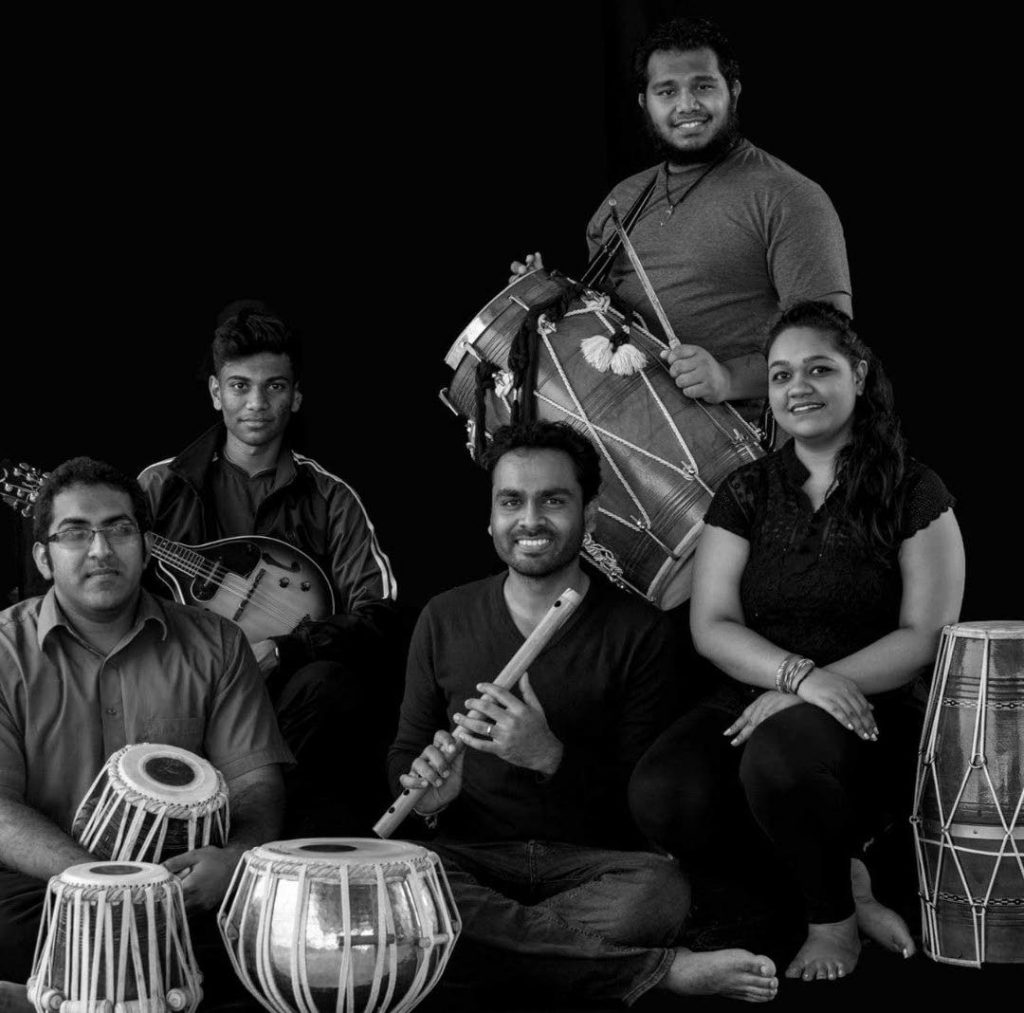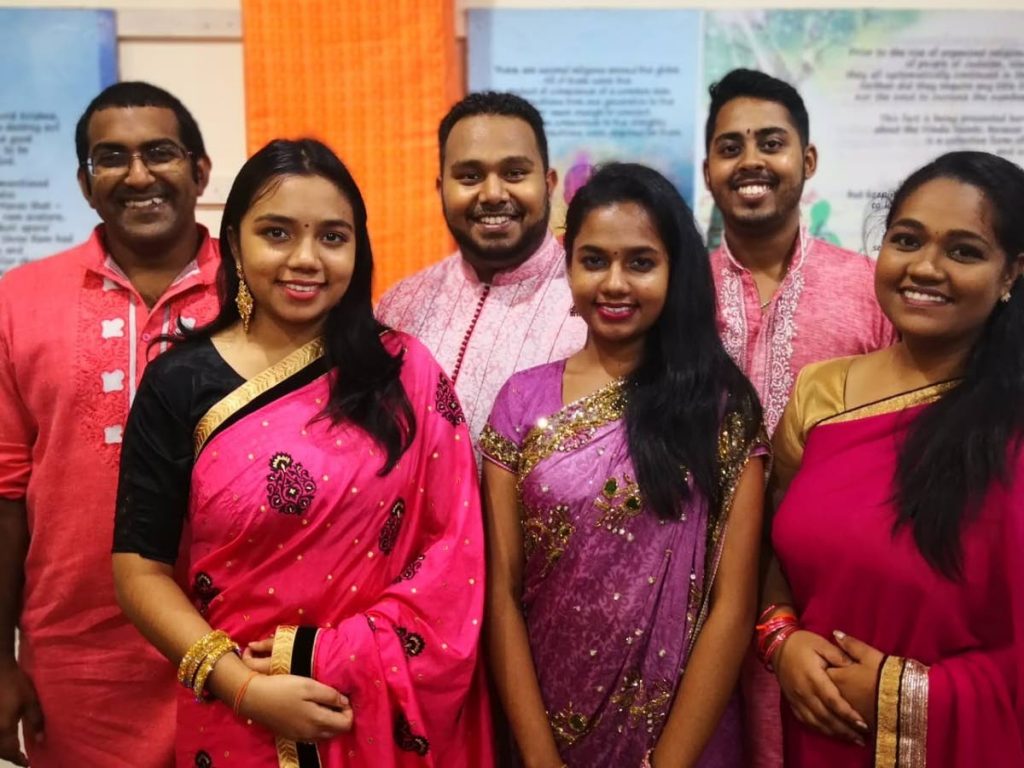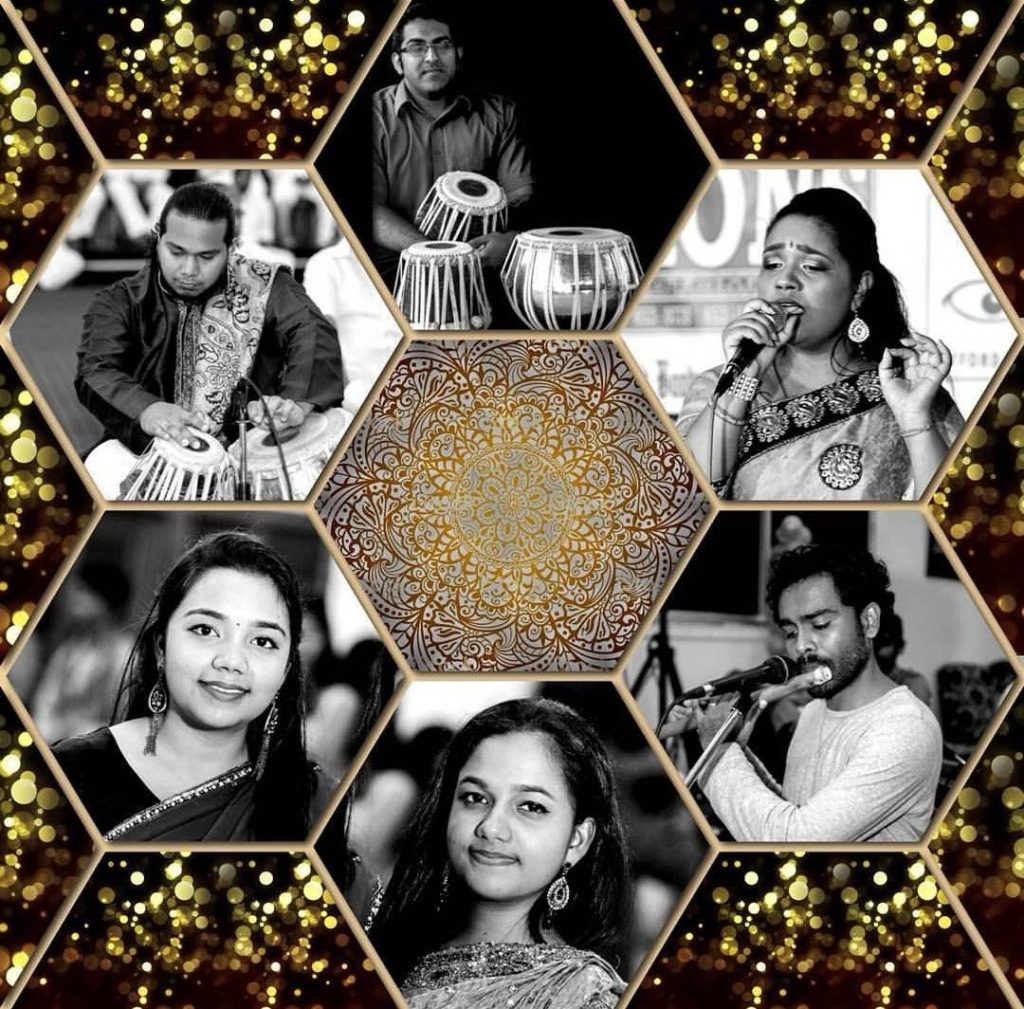S.O.H.A.M. - Making music across religions

JUST before six each morning, the sound of the azaan in the distance coupled with the temple bells downstairs our apartment in Benares provided a harmonious start to my school day. Years later, this past remains an echo in the present, a sound memory with which I begin many of my mornings here in Trinidad. The rise of an Islamic conscientiousness in Trinidad is more prominent now and the growing resonance of the azaan, for a musician’s ear, continues to inspire a meditative calm.
Sound is an important element of Hindu devotion and sound is devoid of caste, religion, gender and other divisive categories. It takes the form of mantras and bhajans (devotional songs) and forms the base of the Trinidadian Hindu tradition that is rooted in Bhakti.
Bhakti, roughly translated, means devotion but is not a complete picture of the meaning of devotion in the Hindu thought. For the purposes of the general readership, Bhakti entails a personal relationship with the divine, a relationship that can take the form of that of a lover as evidenced in the famous poet saint’s Meerabai’s relationship with Krishna (lover) to that of a mother-child relationship as in the case of the Yashoda/Krishna (mother-son) relationship. The Bhakti tradition is rooted in emotion where emotions are not to be misunderstood as wild, unfettered feelings but rather a conscious act of love. Bhakti’s aim is the movement beyond the senses towards connection with the inner being. It is therefore not surprising when a young group of musicians from diverse Hindu backgrounds, unite as a band under the name S.O.H.A.M.

S.O.H.A.M an acronym for Seekers of Haq (Truth), Ananda (Bliss) and Moksha (Liberation) together, form S.O.H.A.M. But Soham also translates as "I am He", pure consciousness. And the band describes itself as one that is aimed at "identifying oneself with the universe or ultimate reality through music."
Officially launched on Father’s Day of this year, the band performs mainly at private mehfils (musical sittings), weddings and mehndi nights. Their main forum explains Srishti Ramdass, one of the founding members and manager of the band, is family oriented.
With the popularity of an Islamic musical tradition that has found a prominent place in Hindi films and other musical recordings like the Coke Studio series on Youtube, through the voices of singers like Nusrat Fateh Ali Khan, Abida Parveen and Rahat Fateh Ali Khan, it is no wonder that the imaginations of a band of young musicians, ranging in age from early 20s to early 30s would be attracted to a fresh, new sound.

Sufi music is an Islamic, mystical tradition of music. Similar to Bhakti music, it can be accurately described as music of the heart. Like Bhakti poets and singers, Sufis poets and singers aim at a personal relationship with the divine that transcends the senses.
The band according to Ramdass "seeks to find the truth of divine love and knowledge through direct, personal experiences with God… Our renditions consist of the words of great poets and saints which take the form of ghazals, qawwalis, bhajans, chants, instrumentals and geets with flavours of Hindustani, Carnatic and Sufi elements."
As part of the musical experience, the band draws on a range of familiar and unfamiliar instruments. There are the usual staples – harmonium, tabla, dholak, flute and some unfamiliar to a general public – ghatam, mrindangam and bulbul tarang.
"We try our best to keep our sound as authentic as possible by using instruments without electronic enhancements, thus keeping the essence of their natural beauty and sound alive also adding to the visual appeal of our offering," notes the members of the band.
In a time where religious intolerance and communal strife seems to be the order of the day, S.O.H.A.M.’s musical unification of two religious traditions seems timely.
The band can be contacted for bookings at contactsohammusic@gmail.com or 321-7454.


Comments
"S.O.H.A.M. – Making music across religions"